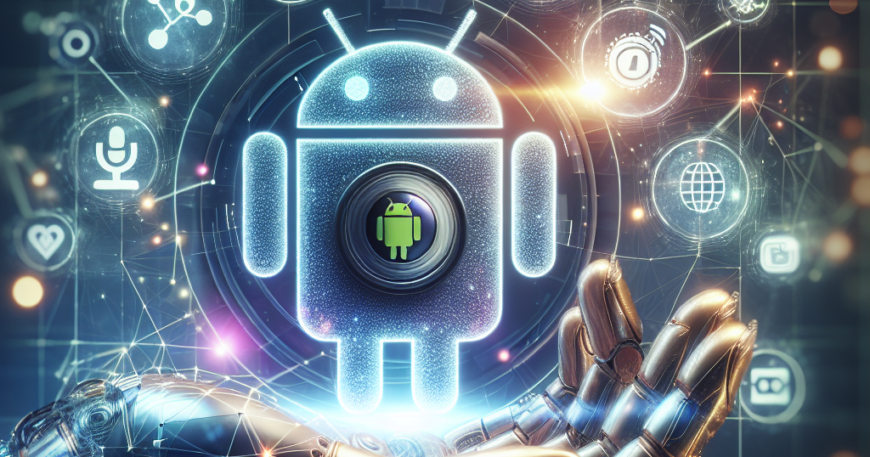
In the fast-paced world of technology, staying relevant is crucial for developers, especially in Android app development. With the advent of artificial intelligence (AI) and software engineers like Devine, the landscape of app development has undergone significant transformation. As AI continues to boom, Android Developers must adapt and evolve to remain competitive and provide an edge over other developers.
Staying up to date with new Android APIs, Jetpack Compose, Kotlin Multiplatform, etc are no longer the only areas where Android Developers need to thrive. To excel at more than just code, Android Developers need to understand and implement AI and use it to its fullest to upgrade themselves and their apps.
In this blog, we’ll explore how developers can stay relevant in Android app development in the AI era.
Look at AI as a tool, not a threat!
Ever since ChatGPT was launched back in Nov 2023, developers of all sorts sought after it and soon learned Generative AI’s fantastic capabilities of generating code using the technologies that there are to use. While many developers are worried that Generative AI is going to render them jobless, some are using AI to its full capability. Further down the blog, we will explore how developers, especially Android Developers can do exactly that.
Understanding the Impact of AI on Android App Development
Instead of looking at Artificial Intelligence (AI) as being a competitor coder, Android developers need to look at it as being a transformative force in the realm of app development.
AI’s impact extends beyond mere novelty or code generation.
It is something that entirely changes the way our apps interact with the users, and the way we build our apps. AI permits Android apps to produce personalized experiences & suggestions, user behavior analysis, better accessibility controls and automation that evolves based on the users’ needs and conduct.
Embracing AI for Android Application Development

AI is here to augment our capabilities. AI can automate repetitive tasks like code generation and testing, freeing you to focus on using it further to add creative aspects to our app development.
There are many other ways in which Android developers can use AI to elevate their app’s features-
Embrace AI-powered development tools:
- Code generation and completion: Utilize AI assistants like Github Co-Pilot and ChatGPT to suggest code snippets, reducing boilerplate code and streamlining development.
- UI/UX design assistance: Explore platforms like Midjourney, Framer, or Uizard which use AI to generate mockups and suggest design improvements based on best practices.
- Automated testing: AI-powered testing tools can automate repetitive tasks, freeing up time for manual testing and improving overall code quality.
- Using on-device AI/ML frameworks: Tools like MLKit, TensorFlow Lite, and Gemini Nano provide AI models to provide advanced solutions for your app without relying on cloud-based models and processing user data to craft personalized experiences.
Integrate AI functionalities into your apps:
- Data-Driven Decision Making: Emphasize the significance of leveraging AI for data analysis to make informed decisions about app features, improvements, and user engagement strategies.
- Accessibility Integration: Discuss how AI can contribute to making Android apps more accessible for users with diverse needs, showcasing a commitment to inclusivity.
- On-device intelligence: Explore frameworks like MLKit or Gemini Nano to enable on-device machine learning, allowing your app to process data locally without relying solely on the cloud.
- Personalization: AI can personalize the user experience by recommending content, predicting preferences, and tailoring features based on user behavior.
Developing your AI skillsets as an Android Developer
Now that we know the importance of embracing AI into Android app development, it is important to understand how we can grow our AI skillsets as Android Developers.

There are numerous ways in which developers can enhance their AI proficiency and integrate AI capabilities into Android apps.
- Online courses: While you do not need to be an expert in AI/ML, it is good to have beginner-level knowledge about it. Deeplearning.ai, Google Cloud, Microsoft, etc offer some great courses on AI that can help level up your skills as a software engineer. By taking these courses, you can gain hands-on experience and acquire the knowledge needed to leverage AI effectively in your Android projects.
- Honing your AI skills by including AI in your projects: One way to learn AI is to experiment with the AI features we discussed above in some hobby projects where you can leverage available AI tools and frameworks to make creative apps. Another way is to come up with AI-powered solutions for your existing Android apps either to build better user experiences and designs or simply process user data to craft meaningful and handy data analysis for them.
- Leveraging open source community: One of the most popular learning strategies for most developers — you can look into AI-powered open-source Android projects and learn by either extending these apps or contributing to these apps. This is a fantastic way to gain practical experience and collaborate with other developers.
- Libraries and Frameworks: Familiarize yourself with popular ML libraries for Android development, such as TensorFlow Lite, ML Kit, and Gemini Nano. These libraries provide pre-built tools and functionalities, saving you time and effort.
Don’t underestimate the power of the human brain
Although AI possesses the ability to accomplish seemingly impossible tasks and has the potential to amplify our productivity tenfold, it’s essential to recognize that its effectiveness is ultimately determined by the quality of our input and guidance.
Conclusion
The integration of AI into Android development opens a plethora of possibilities. By understanding & embracing AI as a tool, as a pair programmer, as a teacher, as a mentor, and developing your AI skillset, and staying true to human insights, you can ensure an edge over other software engineers. Remember, the future of Android app development is a collaborative effort between human creativity and AI’s immense potential.




